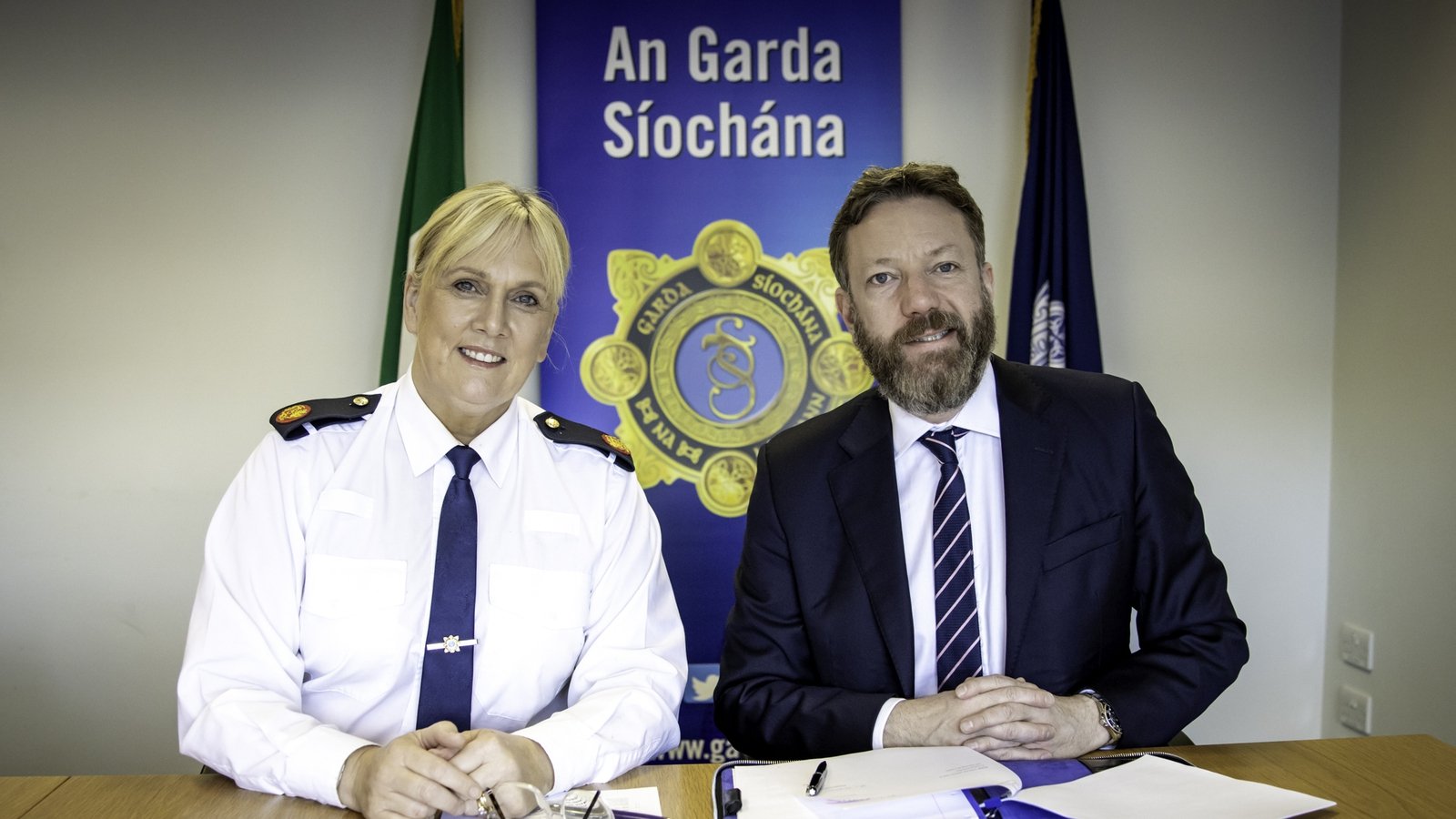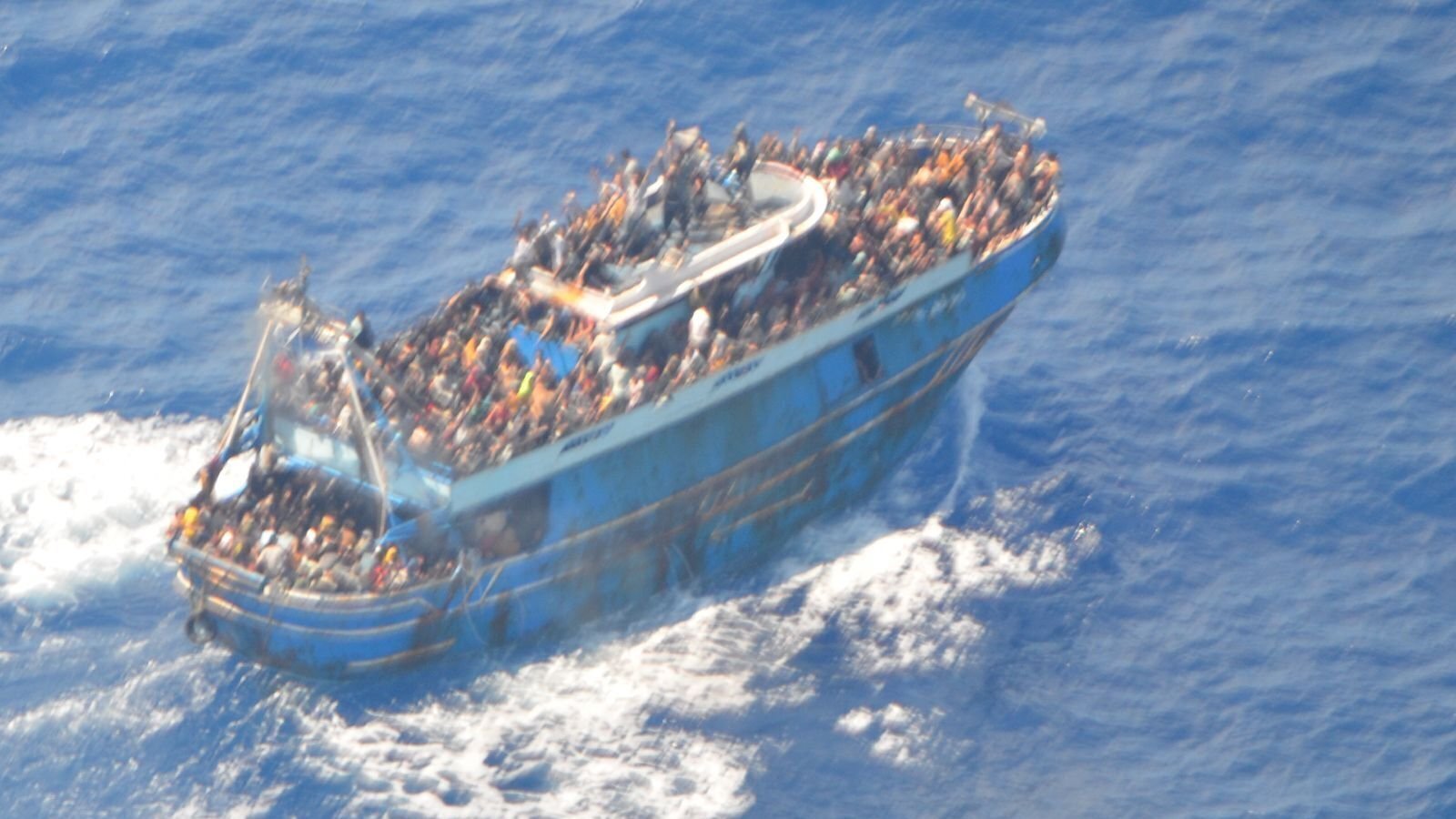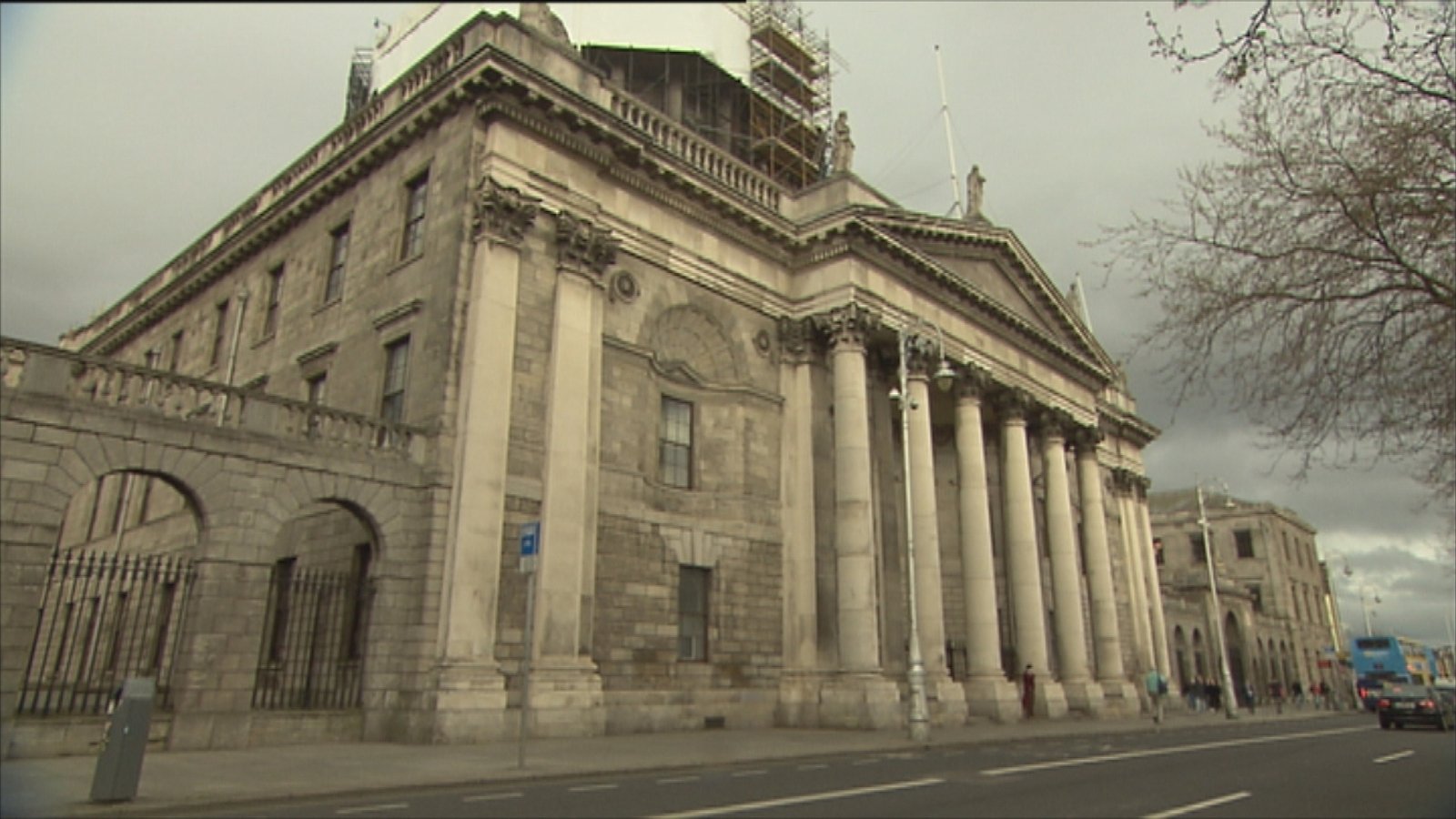It’s so cold – Rough sleeping in sub-zero temperatures
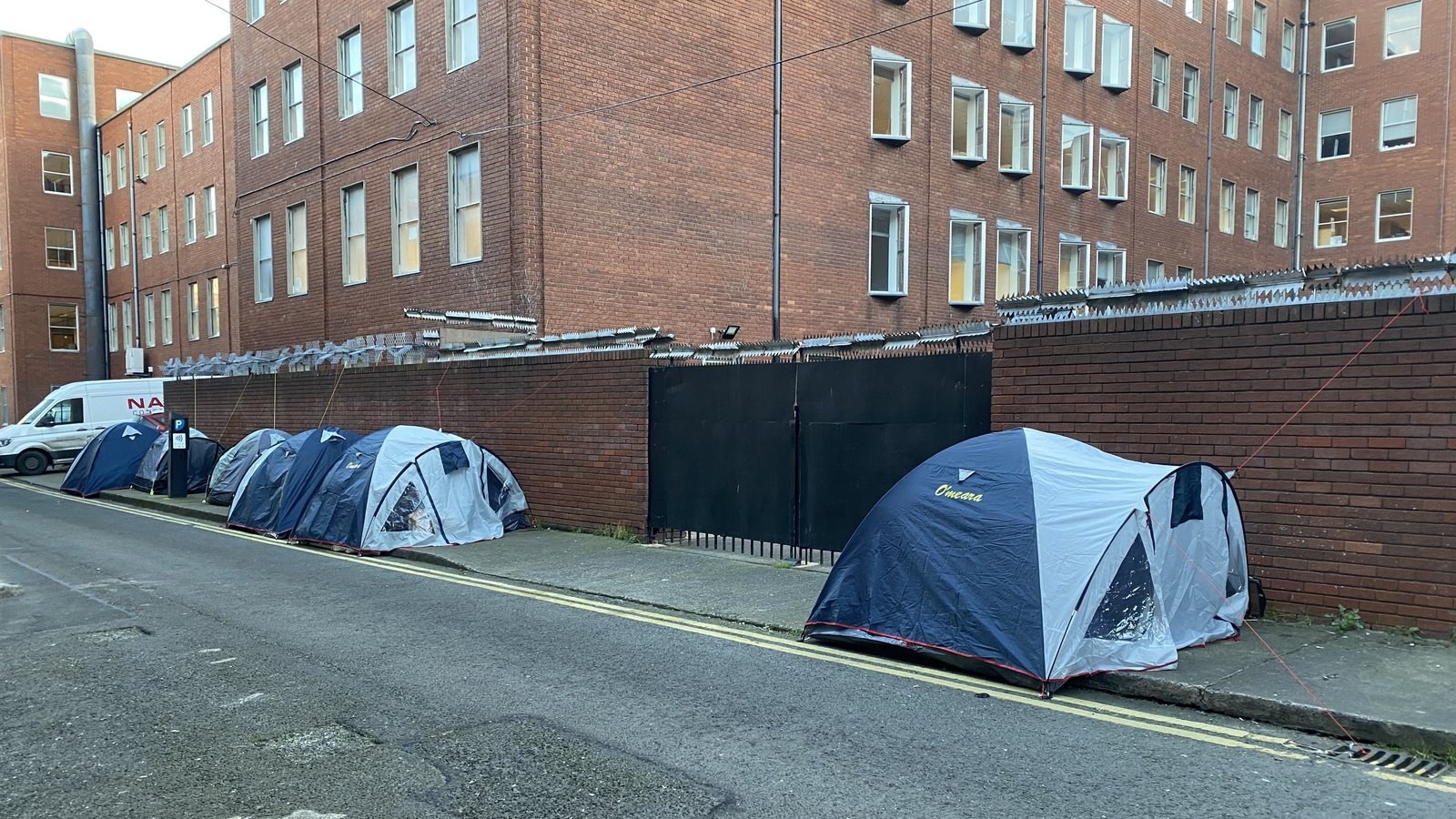
On St Andrew’s Street in Dublin city centre there is a makeshift memorial to 41-year-old Stephen Clarke.
Known as Clarkey to his friends, the father of two was from Dundrum in south Dublin.
Flowers, candles and photos have been laid where he died sleeping rough in the early hours of Tuesday morning last week.
Looking at the memorial, postal worker Paul Bell, who works at the post office across the road, told me he recognised him.
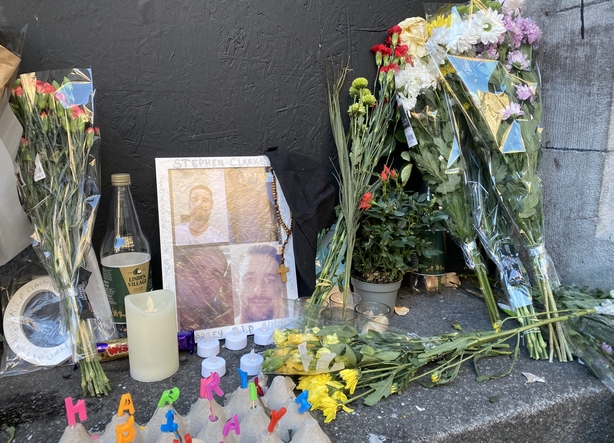
He said he had seen Mr Clarke around the area, though he did not know his name, and he spoke to him the evening before he died.
“I came over and gave him a cup of tea and a sandwich, and he said thanks very much postman,” Mr Bell said.
That night there was a low temperature weather warning in place, and the Dublin Regional Homeless Executive (DRHE) confirmed that its extreme weather protocol was in place all that week.
Under it, bed capacity is boosted by the introduction of 330 permanent beds and 40 “extreme weather beds”.
That protocol and additional bed capacity remain in place this week as the cold weather continues, with low-temperature warnings in place in Dublin for five consecutive nights, including tonight.
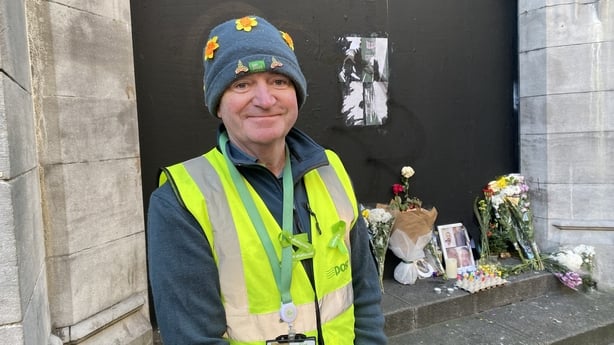
Dublin Simon’s outreach team has been working to help rough sleepers access beds and get them out of sub-zero temperatures.
In Dublin 1 today they met Margaret Pender and her partner.
“They are finding it hard to find couples accommodation,” Luke from the team explained after speaking with them.
“They did both have singles’ accommodation, but they wanted to stay out together, so they’re spending a lot of nights out in the cold, in the tent together,” he told me.
“Couples’ accommodation is one of the main issues we’re seeing, we’re seeing a lot of couples out for that reason.
“We’ve tried to compromise, we’ve asked them would they go to the same hostel, but in different sections, she’d be in the female section and he’d be in the male and they’ve agreed to that, so that’s what we’ve requested,” Luke said.
Ms Pender was happy to speak to us, but her partner was not.
She told RTÉ News that she has been homeless for around ten months now.
She is nervous about going back into a hostel and described her first experience of being “like a prison”.
Nevertheless, she is keen to try again, hoping not to spend another night in a tent.
“It’s very dangerous, it’s very cold, the temperatures are dropping every night, it’s getting colder every night,” Ms Pender said.
“You could have five or six sleeping bags on you, it still gets cold. The moisture comes through the tent, and sometimes you get ice in the tent.”
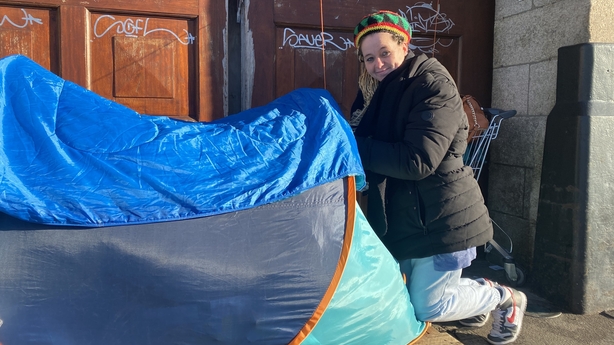
As we walk with the team, they meet a homeless man on his own, without a sleeping bag or tent in Smithfield Square.
A member of the public alerted the team to his presence, and they were relieved to find that he was still there when they arrived.
“We are getting a lot of alerts from the public about people sleeping rough so as well as our usual routes, we are responding to alerts and helping people be booked into accommodation,” Dublin Simon Outreach Manager Ciaran King said.
One group of people who cannot avail of Dublin Homeless Emergency Accommodation are some of the over 600 international protection applicants without State-provided shelter amid an accommodation shortage, who are now rough sleeping as a result.
The DRHE has said that it does not have the remit to provide accommodation to this group as they are the responsibility of the Department of Integration and the International Protection Accommodation Service (IPAS).
Instead, outreach teams who meet rough sleeping asylum seekers contact IPAS.
“It’s a very difficult situation because a lot of them are walking around a lot, they wouldn’t be bedding down in traditional spots if at all, because a lot of them are very scared to rough sleep, a lot of them are very scared to be seen on the streets due to the riots and other issues,” Mr King said.
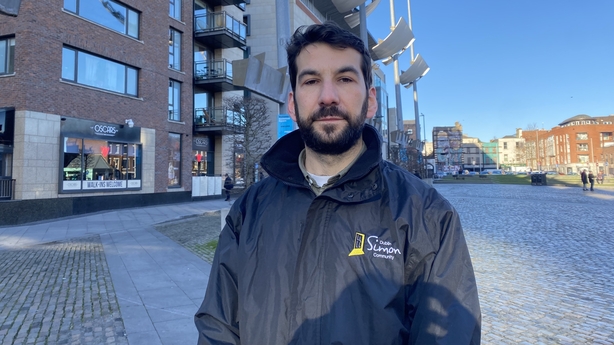
“We meet them, we engage with them, we offer support, and we advocate with the Department (of Integration) to make sure that the department know that they are rough sleeping and to try and get them prioritised for accommodation,” he said.
The Department of Integration told services supporting homeless international protection applicants this week that “any IPAs (International Protection applicants) met rough sleeping around Dublin will be accommodated through our duty phone immediately”.
Mr King said they contacted the Department of Integration about IPAs that they have met who are sleeping rough and on one night in particular, he is aware that arrangements were made to provide “transport and accommodation for those people”.
However, at the time of publication, no official figures were available from the department as to how many had been referred or accommodated since it ceased offering State-provided accommodation to all eligible applicants on 4 December.
The figure is certainly likely to be lower than 87, which is the total number of new asylum seekers who were initially not offered shelter by the State but were subsequently offered a space.
Some of these offers will have been made to those who have been waiting the longest for accommodation.
Sultan has been sleeping in a tent in Dublin 2 since he arrived in Ireland seeking international protection four days ago.
“It’s severe cold, I couldn’t sleep because of the cold weather” he explained through a translator.
In his own words he manages to say: “Its very cold at night, afternoon, very very cold.”
So far, he has not been offered emergency accommodation of any description beyond his tent, where he will spend another night in sub-zero temperatures tonight.

